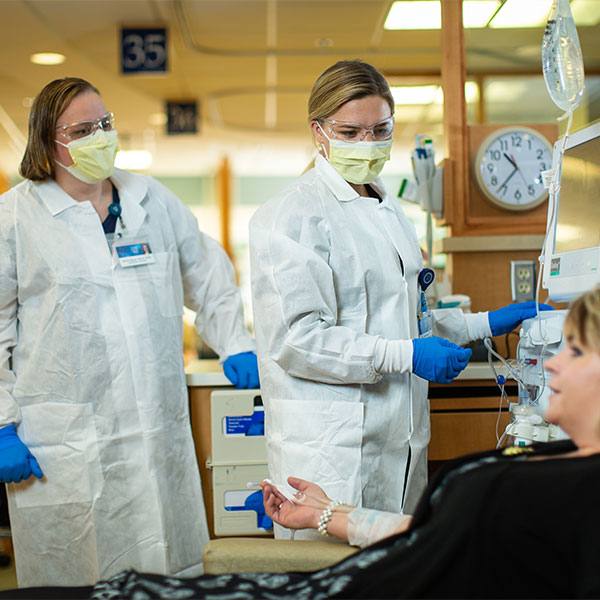-
Biotherapeutics
Mayo Clinic trains a new class of regenerative sciences students
Mayo Clinic has selected five new students for one of the first-ever doctoral tracks in regenerative sciences. This is the third class admitted since the doctoral program began in 2020.
Regenerative medicine and biotherapeutics are so new that very few academic medical centers have curricula to train the next generation of physicians and scientists to deliver innovative care in this field. To fill that educational gap, Mayo Clinic developed coursework for the Regenerative Sciences Ph.D. track in the Mayo Clinic Graduate School of Biomedical Sciences.
"We are excited to enroll such a talented and accomplished group of students in the Regenerative Sciences Ph.D. track," says Isobel Scarisbrick, Ph.D., program director and neurological sciences researcher. "The need is great for regenerative biotherapeutics that address rare and complex diseases. These students bring an inspiring passion for discovering new cell and gene therapies to meet the needs of patients."
Mayo Clinic's Center for Regenerative Biotherapeutics supports the Regenerative Sciences Ph.D. track as part of its objective of training the future workforce.
The five students were chosen from a highly competitive group of candidates. Their selection was based on several factors including academic performance, interviews, research, publications and presentations.
Fan Feng holds a bachelor's degree in molecular, cell and developmental biology from University of California, Berkeley and a master's degree in stem cells and regenerative medicine from Keck Medicine of USC. She joins the Ph.D. program after working in the biomanufacturing industry in cell therapy research and product development.
Sierra Hamernick graduated from the University of Minnesota with a degree in biological sciences. Her passion is discovering ways to apply cell therapy to disease treatment. Her research will focus on induced pluripotent stem cell technology for disease modeling. Induced pluripotent stem cells are cells that have been brought back to an embryonic state where they can be reprogrammed to become any type of cell in the body. Mayo Clinic uses them in research to track disease progression and test new therapies.
Rylee Kopchak earned her undergraduate degree in biochemistry and molecular biology from Wake Forest University in North Carolina where she studied aging, tissue engineering and wound healing. She comes to Mayo Clinic after a year of regenerative medicine research at Harvard Medical School's Spaulding Rehabilitation Hospital. Her research interest is stem cell biology and regeneration in the context of musculoskeletal health and aging.
Kaleb Miles is a graduate of Bushnell University in Oregon with a bachelor of science degree in biology and of the University of Colorado Anschutz Medical Campus with a master of science degree in biomedical science and biotechnology. Following his graduation, he worked as a research assistant exploring the role of chloride transporters on neurodevelopment. His research interest includes the investigation of regenerative targets within the nervous system. He hopes to apply his research to repair of diseased tissue, particularly for patients with spinal cord injury and multiple sclerosis.
Isaiah Perez has an undergraduate degree in microbiology from the University of Texas in El Paso. He spent the last year working in the laboratory of Mayo's Steven Ekker, Ph.D., researching mitochondrial DNA editing. His research interest began with craniofacial development and has evolved to probing the blueprint of the human embryo. His goal is to enhance regenerative therapies for cognitive diseases.
Regenerative sciences is one of eight doctoral tracks within the Mayo Clinic Graduate School of Biomedical Sciences. The other Ph.D. programs welcoming new students are:
- Biochemistry and Molecular Biology
- Biomedical Engineering and Physiology
- Clinical and Translational Science
- Immunology
- Molecular Pharmacology and Experimental Therapeutics
- Neuroscience
- Regenerative Sciences
- Virology and Gene Therapy








